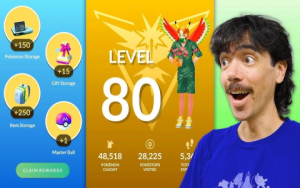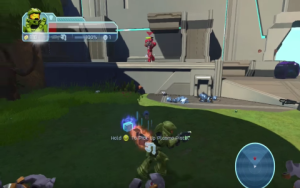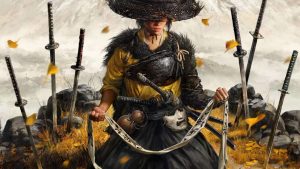Ghost of Yotei Devs Reflect On Revenge, Healing, And The Emotional Core of Their Story
Ghost of Yotei wastes no time drawing you in. Set amid the beauty of feudal Ezo, its tale of revenge soon gives way to something deeper–a journey of healing and reflection for its protagonist, Atsu.
Revenge and grief are still powerful motivators in the game, and these are grim themes that PlayStation gamers might be familiar with, thanks to titles like The Last of Us Part 2 and God of War Ragnarok. So what is it about the cycle of violence and anguish that makes it so appealing to developers, who have all put their own stamps on these ideas?
Speaking to GameSpot, Ghost of Yotei lead writer Ian Ryan and creative director Jason Connell explained how Atsu’s quest might have started with revenge in mind, but over the course of the game, evolved into something greater.
“It’s about healing–revenge just sets it off”
“I feel like there are a lot of different types of games–that even within Sony–that don’t touch revenge at all, but there are some that are about revenge,” Connell said. “I can’t really speak to why they do it, but I will say some of the reasons why we chose it, and I think some of those will have overlap and I bet some of them won’t have any at all. So, for example, it’s hard to imagine that any other Sony game has been looking at a bunch of samurai films with revenge [themes] and decided that it was something that they were inspired by. But I could imagine that the second reason, we were going for a game that was going to be very open, a lot of freedom.”
“I’ve seen people play 40 or 50 hours and haven’t gotten to the second Yotei Six member. That is by design. Like we’ve made the game to be this way, but that really meant that we needed a very simple narrative hook that could get you, propel you into Atsu’s journey, and some people are just going to go do it and find out it’s a lot more than that. It’s about healing–revenge just sets it off. And the people that don’t, like, at least you understand that it’s not like a hyper-complex thing to understand early on.
“And I do imagine that it can probably be appealing to storytellers, because storytelling is hard enough as it is, but you put it inside of a giant video game. Both progression, open-world exploration, and all these other competing elements can be really challenging. So the simplicity of it is really beautiful, and I think there’s probably something that’s very attractive to creators.”
“We wanted to kind of plant that fire in the player”

Ryan added that themes of revenge were useful in that they allowed players to hit the ground running, keeping them engaged from the very start of the game. “It’s similar in that as we’re approaching the story and we know it’s going to be so wide, that we just want the player to be able to keep that, track that in their head, and, and not lose sight of that kind of overriding objective and emotional core to what Atsu is going through, even as she’s following the golden bird to do any number of of side stories,” Ryan said.
“We also wanted a smaller opening overall so that players could engage in the gameplay and get to the open world early. And part of that means also that we wanted to players to lock into and relate to that core overriding goal. It is just such a visceral, human desire that does have deep roots everywhere.”
“Everyone can relate to it–just to varying degrees–and so we wanted to kind of plant that fire in the player and create that connection with Atsu, that they could carry it out into the open world even if they decided not to engage in the revenge quest for 30 hours, because ultimately going off and doing other things is a form of healing and not getting into that obsession.”
Connell and Ryan had lots more to say about the game, and if you’re interested in exploring just how the memorable roster of villains–the Yotei Six led by Lord Saito–helped shape the game, you can watch the video above for fascinating insight on Ghost of Yotei’s development.
“Ghost of Yotei is shaped by Atsu, its new protagonist, as you’re propelled on a gripping tale of revenge amidst the backdrop of Feudal Japan’s contrasting beauty and violence,” Richard Wakeling wrote in GameSpot’s Ghost of Yotei review.
#Ghost #Yotei #Devs #Reflect #Revenge #Healing #Emotional #Core #Story
Ghost of Yotei Devs Reflect On Revenge, Healing, And The Emotional Core of Their Story






